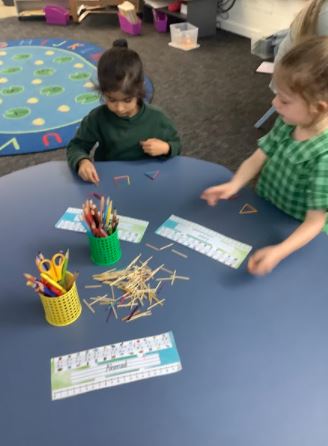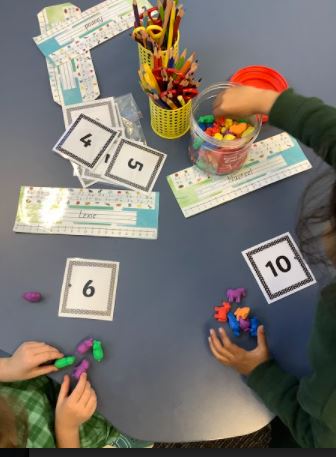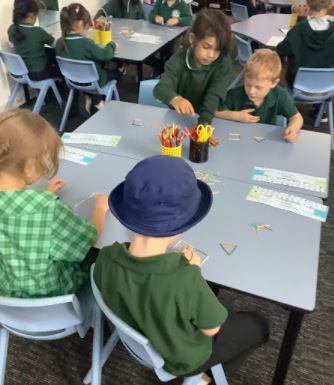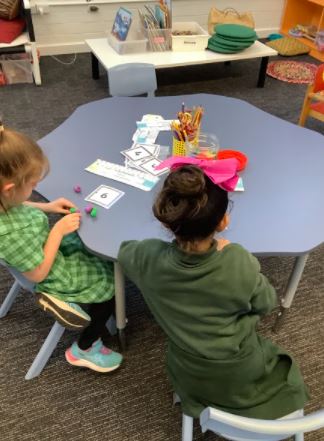Mathematics
The Charnwood-Dunlop Mathematics program follows the Australian Curriculum: Mathematics. The curriculum is organised around three content strands; Number and Algebra, Measurement and Geometry, and Statistics and Probability. Embedded across these three areas are four proficiency strands, aimed at ensuring students proficiency in mathematical skills develops throughout the curriculum and becomes more sophisticated over the years of schooling. These strands are Understanding, Fluency, Problem solving, and Reasoning.
We aim to create a spirit of inquiry during our mathematics sessions. Our lessons are structured and purposeful investigations of mathematical concepts. We use open-ended inquiry tasks and the structure of the reSolve: Mathematics by Inquiry Model to guide the teaching and learning of mathematics in our school, in conjunction with evidence-based models for instruction.
The teachers at Charnwood Dunlop School created agreed upon beliefs around mathematics teaching and learning. We believe that:
- explicit teaching is an integral part of teaching Mathematics
- mathematics teaching and learning requires skills in problem solving, fluency, understanding and reasoning
- best achieved through hands-on, authentic and real-world connections
- learning in mathematics teaching should be differentiated to include all students in the same learning experience
- authentic assessment to begin and guide the process of teaching and learning
In our classrooms you will see practices which reflect our beliefs about the effective teaching and learning of mathematics. Our mathematics sessions are structured using ‘balanced numeracy blocks’ and organised using a warm-up, explicit teaching of mathematical skills and concepts, exploratory activities and lessons, time for reasoning and cognitive closure. We access a wide variety of hands-on, digital and paper based equipment and resources to support student learning. All aspects of mathematical language and vocabulary are intentionally taught and modelled. Time is spent explicitly teaching mathematical skills in an integrated, relevant and purposeful way. We cater for the individual learning needs of each child through differentiation. We use a range of strategies, resources, groupings, and interventions to support the learning progressions of every child.
We see learning to be mathematical as a partnership with parents, and in 2021 we aim to provide information and workshop sessions for parents to support Mathematics at home.




